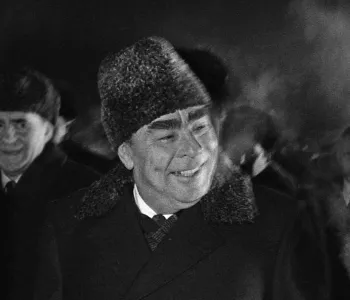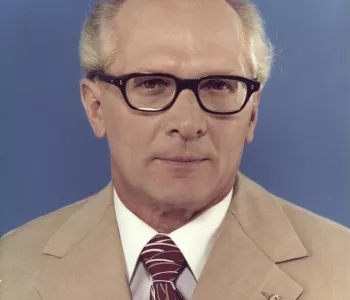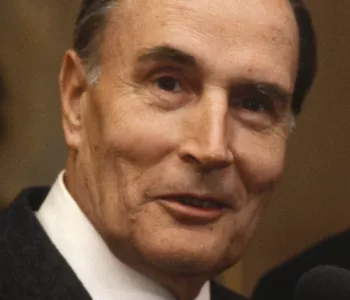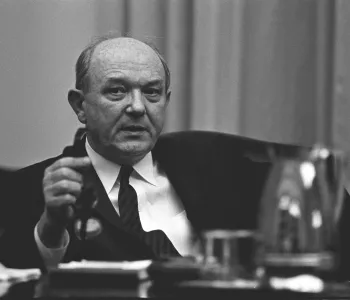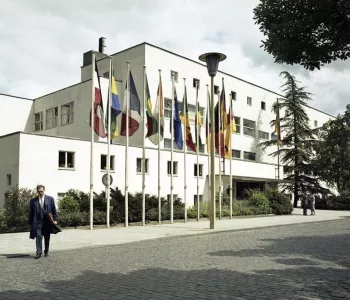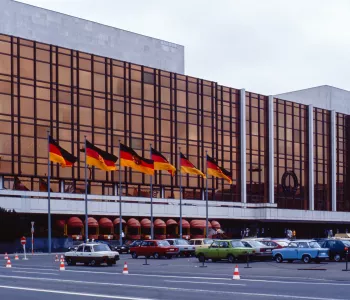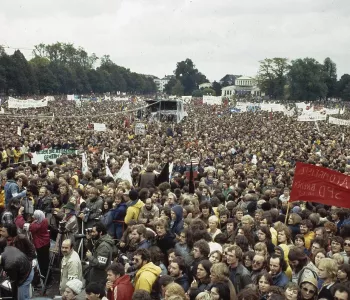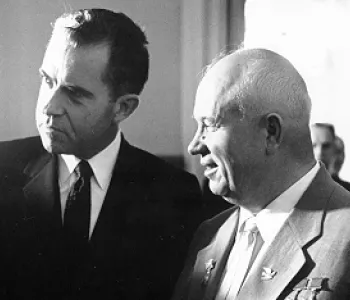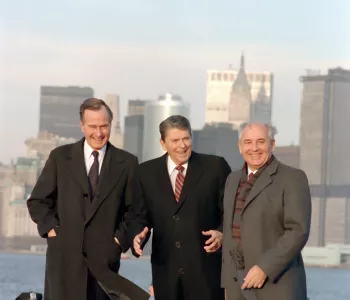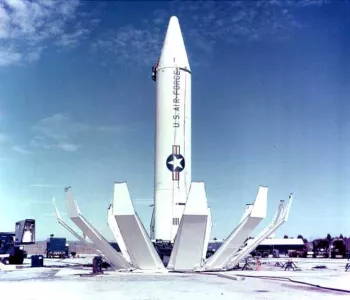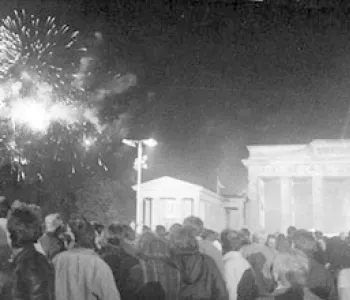Born Herbert Ernst Frahm on December 16, 1913, in Luebeck, Germany, the later Willy Brandt was the son of Martha Frahm, a young, single shopgirl. He later found out that his father was John Moeller of Hamburg, but he never met the man. Brandt was raised by his mother and maternal grandfather, both passionate Social Democrats. As a teenager Brandt first joined the Socialist Party of Germany (SPD) in 1930, but one year later switched to a more radical spin-off, the SAP. In 1933 he assumed the name Willy Brandt while going underground to avoid arrest by Hitler's Gestapo. That same year, he fled Germany for Norway, where he went to work as a radical journalist. In 1938, the Nazis stripped him of his German citizenship.
He returned to Germany after the war and quickly became active in the Berlin SPD. In 1948, his German citizenship was restored, and the following year he was elected a member of West Germany's first parliament. A fierce anti-communist and pragmatic socialist, Brandt quickly made a name for himself in the SPD, which in 1957 chose him as its candidate for mayor of West Berlin. In this position, Brandt played a prominent role during the Berlin crisis of 1958-1962, particularly in August 1961 when the East German regime erected the Berlin Wall. At first imploring the Western allies to take strong action, Brandt quickly became a convert to a more pragmatic approach to the new situation. For example he organized visitor arrangements for families separated by the Wall with the East German government. It was the beginning of the later-to-be-famous Ostpolitik, which sought to overcome the effects of the division of Germany and Europe on the basis of the recognition of its reality.
Brandt was the SPD candidate for chancellor in 1961 and 1965. In 1966 he became West Germany's foreign minister in a coalition government with the Christian Democrats. Three years later he won the chancellorship. His tenure was most renowned for the implementation of Ostpolitik and West Germany's further reconciliation with the outside world. Brandt's government concluded a non-aggression treaty with the Soviet Union and also normalized relations with Poland, Czechoslovakia, and, finally, East Germany. What made Ostpolitik possible was the fact that Brandt's government recognized Europe's borders as inviolable, and furthermore that it acknowledged the existence of two states in the German nation. Even though Brandt did not formally give up on the objective of German unification, many Germans at the time seemed to have their doubts. However, in elections in 1972 the SPD, led by Brandt, gained its largest election victory ever. The year before he had been awarded the Nobel Peace Prize. In 1974 it was revealed that one of his principal advisors was an East German spy. This revelation led to Brandt's eventual resignation from the chancellorship.
Until his death at age 78 on October 8, 1992, near Bonn, three years after the collapse of the Berlin Wall, Brandt remained active in German politics, the Socialist International, and as an international spokesman for better North-South relations.

